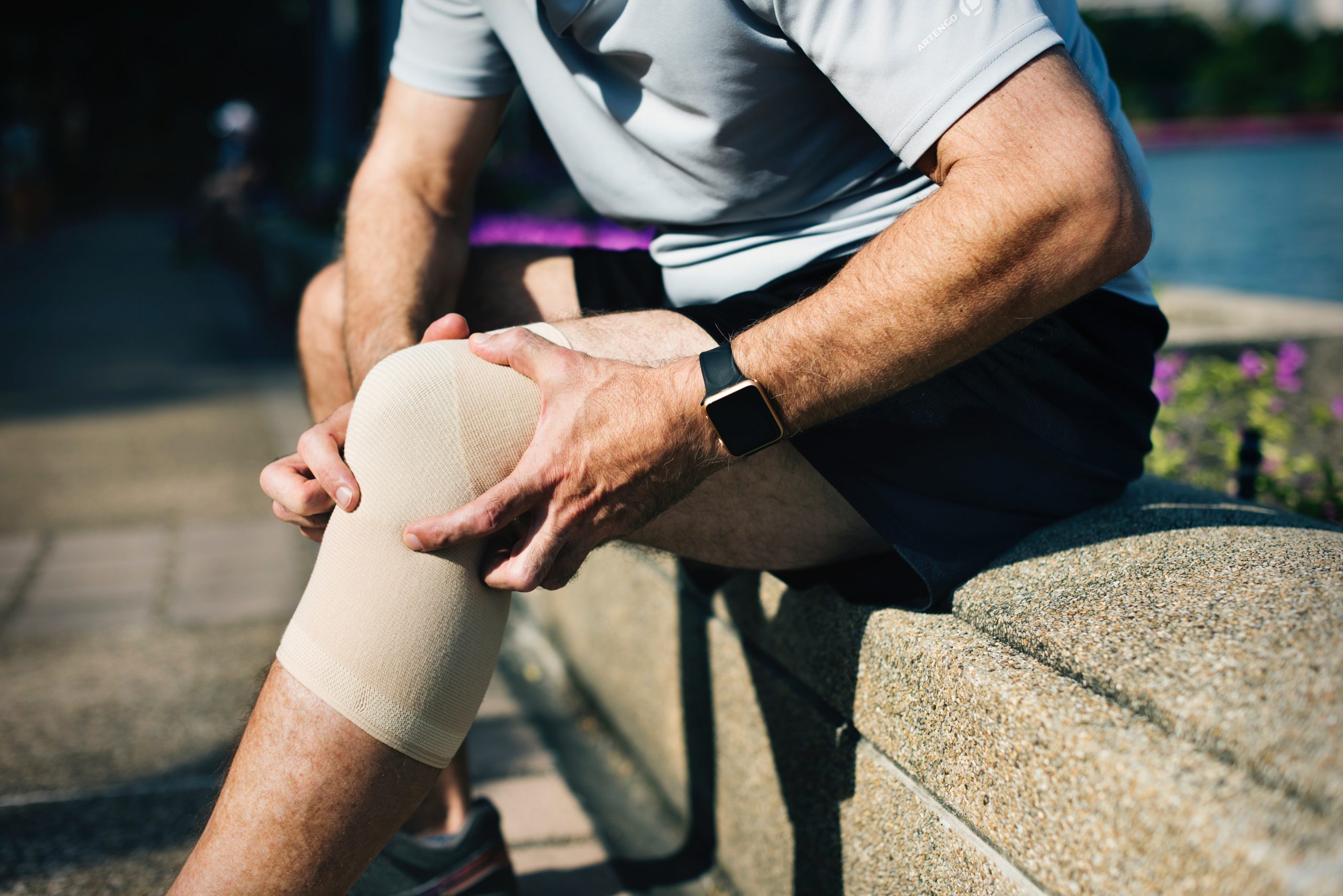
Joint pain affects people of all ages, and it can be caused by several different things. An injury, certain infections and diseases, dehydration, and inflammation can all cause acute or chronic joint pain. Some of these things can be prevented through a proper diet, certain supplements, and light exercise, but what do you do if the pain has already started? Fortunately, there are some things that may help provide some relief, but we need to determine the cause first. Let’s take a look at the potential causes.
Inflammation
Inflammation is more dangerous than many people think, and some experts believe it may play a large role in the development of most chronic diseases. Inflammation typically occurs when the body experiences some form of damage, or recognizes a foreign invader like bacteria. Toxins, dehydration, infections, nutritional deficiencies, and injuries all damage the body, leading to inflammation. When a joint becomes inflamed, it can cause pain, swelling, and redness. The inflammation could also be caused by a disease that affects the joints like arthritis, lyme disease, or lupus, or it may be due to toxins in the body, a lack of collagen, a vitamin or mineral deficiency, or dehydration.
Dehydration
Sometimes the cause of your pain is something simple, and dehydration is often overlooked. One survey found that about seventy-five percent of Americans are chronically deydrated. Chronic dehydration can cause a number of problems, and may contribute to some more serious health conditions. Chronic dehydration can cause headaches, fatigue, dry/flaky skin, constipation, muscle aches, and joint pain. It may also contribute to the development of dementia, gastrointestinal issues, kidney stones, high blood pressure, and UTI’s. Excessive consumption of coffee and tea can also contribute to dehydration. You should be drinking about half a gallon of water a day, or more if you sweat frequently. Consuming enough electrolytes like sodium (salt), potassium, and magnesium is also important.
Types of Arthritis
There are different types of arthritis that have different causes. Osteoarthritis occurs when the cartilage in a joint begins to break down, which typically occurs after the age of forty or fifty, but may occur in younger people who have frequently damaged their joints. Obesity, physically-demanding careers or sports, hormonal imbalances, genes, and other factors can contribute to the development of osteoarthritis.
Rheumatoid arthritis (RA) is another common form of arthritis. RA is an autoimmune condition, and it occurs when the immune system begins attacking the lining of joints in the body,usually beginning in the hands and feet. It is unclear what causes RA to begin, but it may be due to chronic inflammation, hormonal imbalances, genetic risk factors, and other things that may contribute to the formation of most autoimmune diseases.
One other common type of arthritis is gout, also called gouty arthritis. Gout occurs when there is too much uric acid in the blood, and it begins to form painful crystals in the joints. Uric acid levels can get too high if the kidneys are not eliminating it quickly enough. Diabetes, alcohol consumption, poor kidney function, and consumption of certain foods may increase uric acid levels in the blood.
Reducing Joint Pain
There are some things you can do to help reduce joint pain, depending on what is causing it. The first thing you should do is to make sure you are drinking enough water every day. Chronic dehydration affects many people, but few realize it. You should be drinking about half a gallon of water a day, and possibly more if you sweat a lot during the day. You should also avoid inflammatory foods and drinks as much as possible. This includes soda, processed foods, processed meats like bacon and sausages, bad fats such as vegetable oil and margarine, conventional dairy products, fast food, breads, and pasta. Alcohol consumption should also be limited. Many of these can also contribute to a gout flare-up, so it is even more important to avoid these foods and drinks as much as possible if you struggle with gout.
There are also some supplements that may help reduce joint pain in certain situations. These include:
- Traumeric – May help reduce inflammation in the body and joints.
- CollaGEN – Helps to increase collagen levels in the body, possibly decreasing joint pain.
- Reacted Multimin – Helps ensure you are getting enough minerals in each day.
- Chondro-Flx – Contains ingredients designed to help support joint health and mobility, and may also help reduce joint inflammation.
Eating a healthy, varied diet, drinking plenty of filtered water, and taking supplements that support joint health may help reduce joint pain and inflammation. Getting into these habits early in life may also help reduce your risk of developing certain conditions that affect the joints. Joint pain isn’t always something you have to deal with for the rest of your life. We’ll do everything we can to help you feel better!
Listen to our Joint Pain or Arthritis podcast here.
